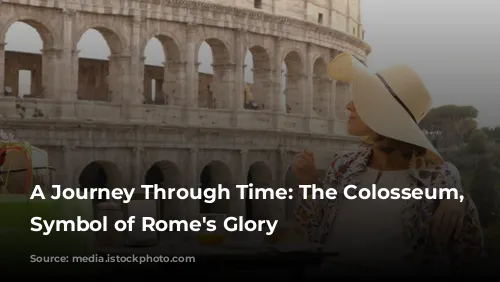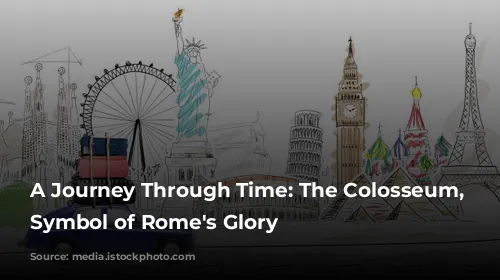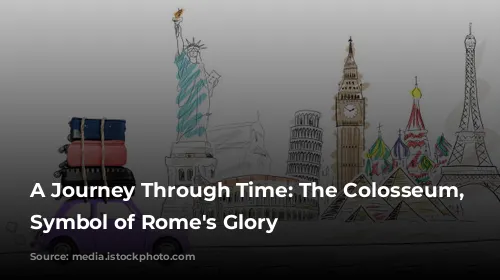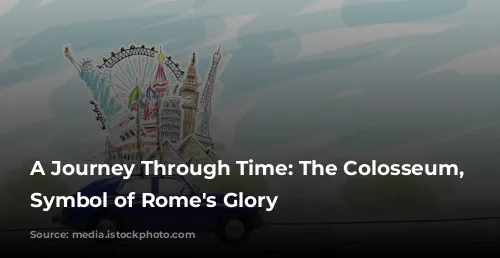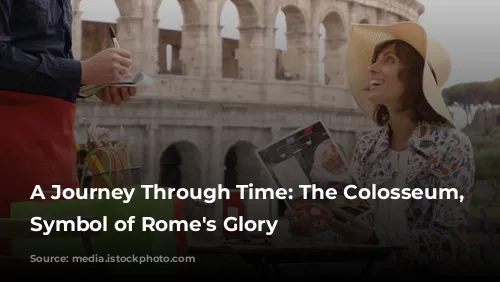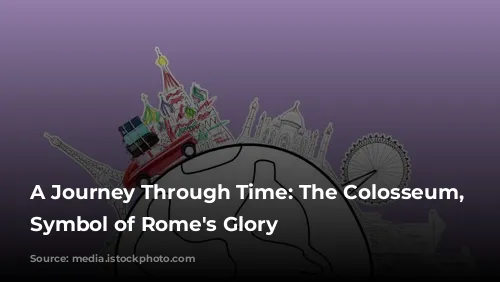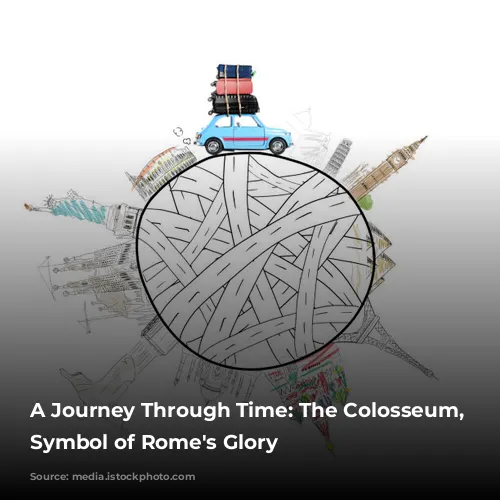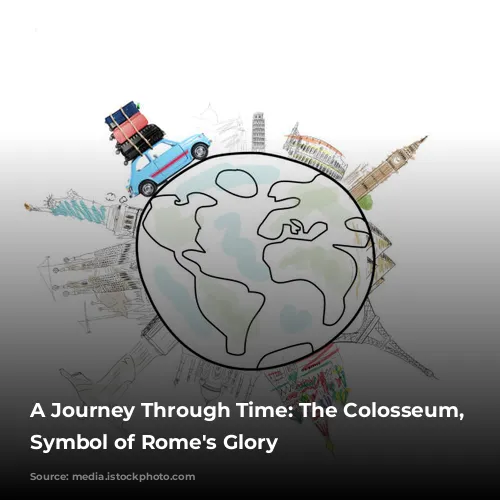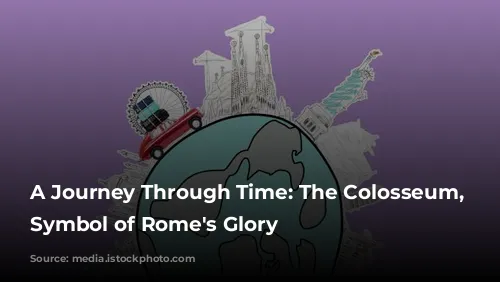The Colosseum, a colossal structure standing tall in the heart of Rome, is more than just a monument; it’s a portal to the past. Its imposing presence whispers stories of gladiator battles, emperors, and a vibrant civilization that thrived for centuries. With almost 2,000 years of history etched into its walls, the Colosseum invites you to step back in time and experience the grandeur of the Roman Empire.
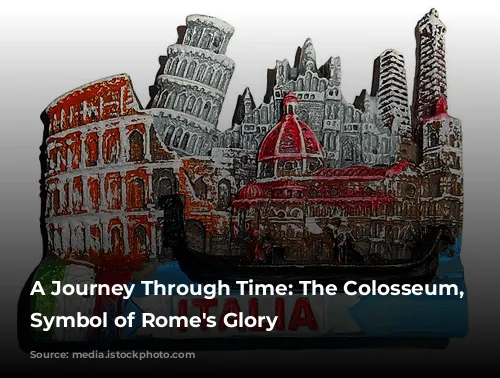
From Construction to Spectacle: The Colosseum’s Rise to Glory
The Colosseum’s story began in the year 72 under Emperor Vespasian’s reign. Construction continued under his successor, Emperor Titus, who proudly inaugurated the amphitheatre in the year 80. This grand arena, known as the Flavian Amphitheatre at the time, was a marvel of engineering and design. Measuring 188 meters long, 156 meters wide, and 57 meters high, it stood as a testament to Roman ambition and skill.
The Colosseum wasn’t just a building; it was a stage for breathtaking spectacles. The Romans, living by the motto “Bread and Circuses”, found entertainment in the exhibitions of exotic animals, executions, reenactments of battles, and the heart-pounding clashes of gladiators. These spectacles drew crowds of over 50,000 people, who filled the Colosseum to witness the drama unfold. The Colosseum’s roaring crowds echoed the pulse of ancient Rome, a city that thrived on entertainment and the spectacle of power.
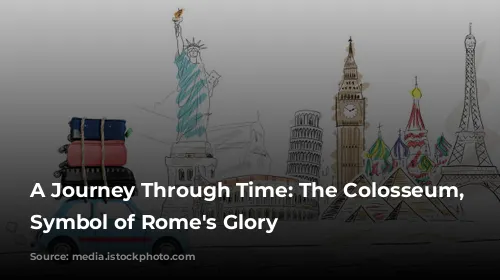
Time’s Passage: The Colosseum’s Transformation
For over 500 years, the Colosseum remained a vibrant hub of activity. The last recorded games were held in the 6th century, marking the end of an era. However, the Colosseum’s story didn’t end there. Through the centuries, it faced lootings, devastating earthquakes, and even the destructive power of World War II bombings. Yet, it endured.
The Colosseum’s resilience is truly remarkable. It was repurposed for various uses – a storehouse, a church, a cemetery, and even a castle for nobility. Its journey through time reflects the changing tides of history, its massive walls a witness to both the grandeur and the fragility of human civilization.
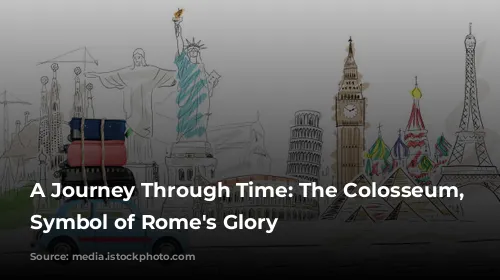
A Legacy of Wonder: The Colosseum Today
Today, the Colosseum stands proudly as one of Rome’s most cherished treasures, attracting millions of tourists each year. In 2007, it was declared one of the Seven Wonders of the Modern World, solidifying its place among the most iconic structures in the world. The Colosseum, a monument to human ingenuity and a portal to a lost civilization, continues to enchant and inspire visitors from all corners of the globe.
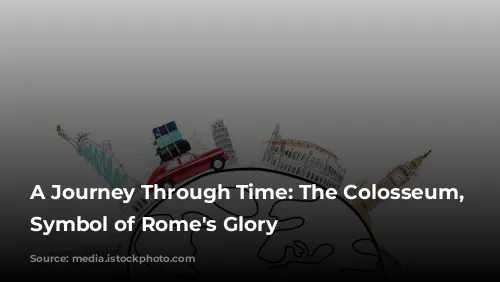
Unveiling the Colosseum’s Secrets: Hidden Stories and Intriguing Details
- The Colosseum’s name, a departure from its original title, Flavian Amphitheatre, was derived from a massive statue of Nero, “The Colossus of Nero”, which stood near the entrance of the Domus Aurea, Nero’s opulent palace.
- The Colosseum’s inauguration was a grand affair, marked by 100 days of games. These spectacles were not without their tragic cost, as over 2,000 gladiators lost their lives in these inaugural events.
- To protect spectators from the sun, the Colosseum was equipped with a canvas ceiling, which provided shade for the sprawling arena. Beneath the arena’s floor, machinery and cages were hidden, ready to unleash the spectacle.
- Some theories suggest that the Colosseum was once filled with water, transforming it into a stage for naval battle reenactments. While these theories are captivating, further investigations are needed to confirm them.
- Every Good Friday, the Pope leads the Way of the Cross procession through the Colosseum, a poignant act of remembrance for the early Christians who perished within its walls. The Colosseum’s connection to the church runs deep, a reminder of the intertwined histories of faith and power.
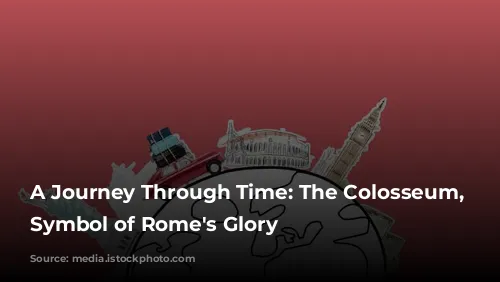
Navigating the Colosseum: Tips for Your Visit
For those who want to make the most of their visit, a guided tour is an excellent option. Skip the lines, explore the Colosseum’s hidden secrets, and learn from an expert local guide. Guided tours often incorporate visits to the Roman Forum and Palatine Hill, offering a comprehensive journey through ancient Rome.
If you’re on a budget, arriving early in the morning or purchasing a ticket to Palatine Hill is a great way to avoid the long lines. Palatine Hill shares an entrance fee with the Colosseum, making it a budget-friendly option.
Another tip for avoiding those lengthy lines is to invest in a Roma Pass. This discount card grants free admission to the Colosseum, allowing you to skip the queues and make the most of your time. The Roma Pass also offers discounts on other attractions and public transportation, making it a convenient and cost-effective option.
The Colosseum isn’t just a monument; it’s a story waiting to be discovered. Prepare to be captivated by its grandeur, its history, and the echoes of a civilization that once ruled the world. Let its walls transport you back in time, revealing the secrets of the Roman Empire and the enduring power of its legacy.
